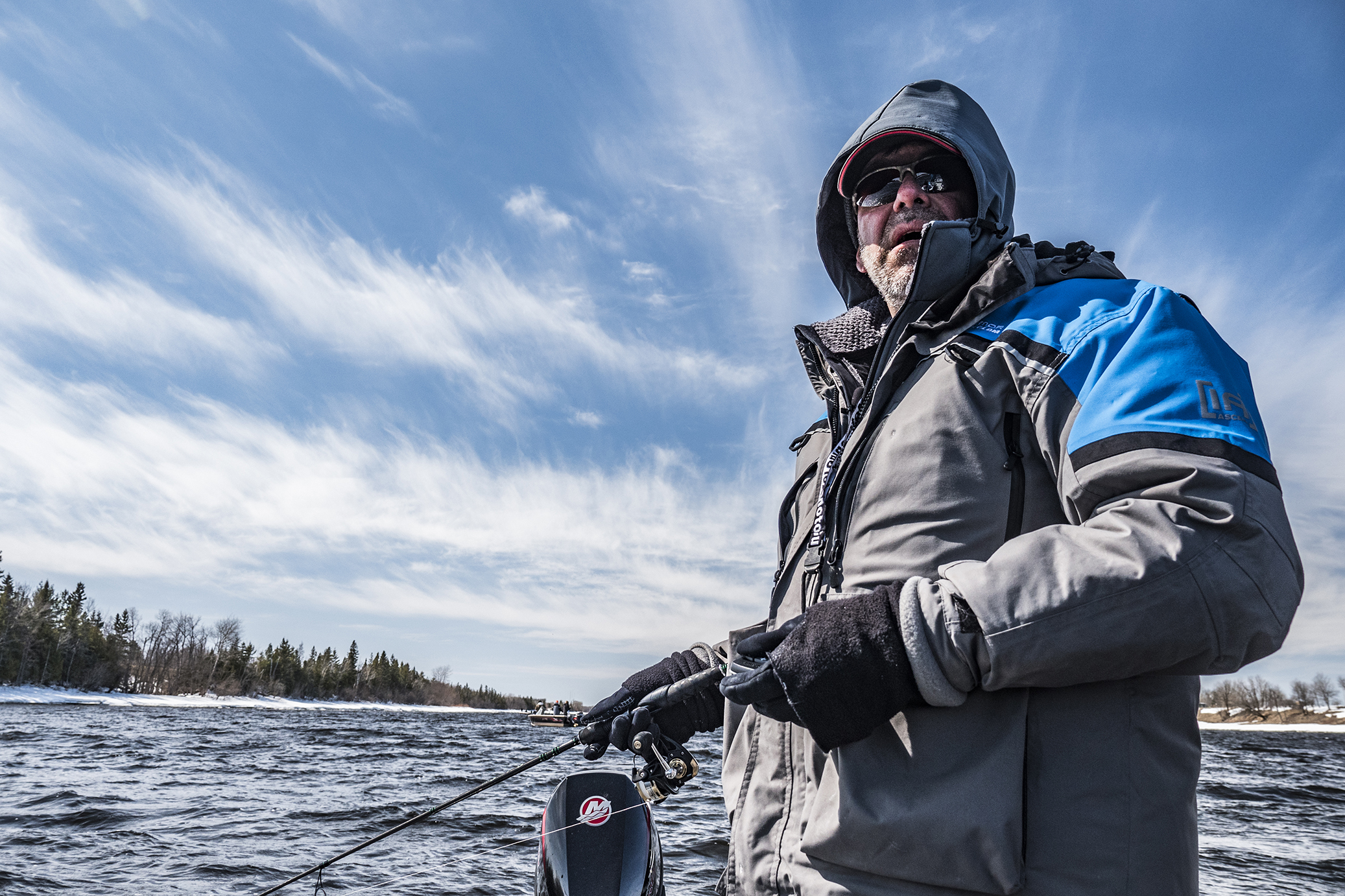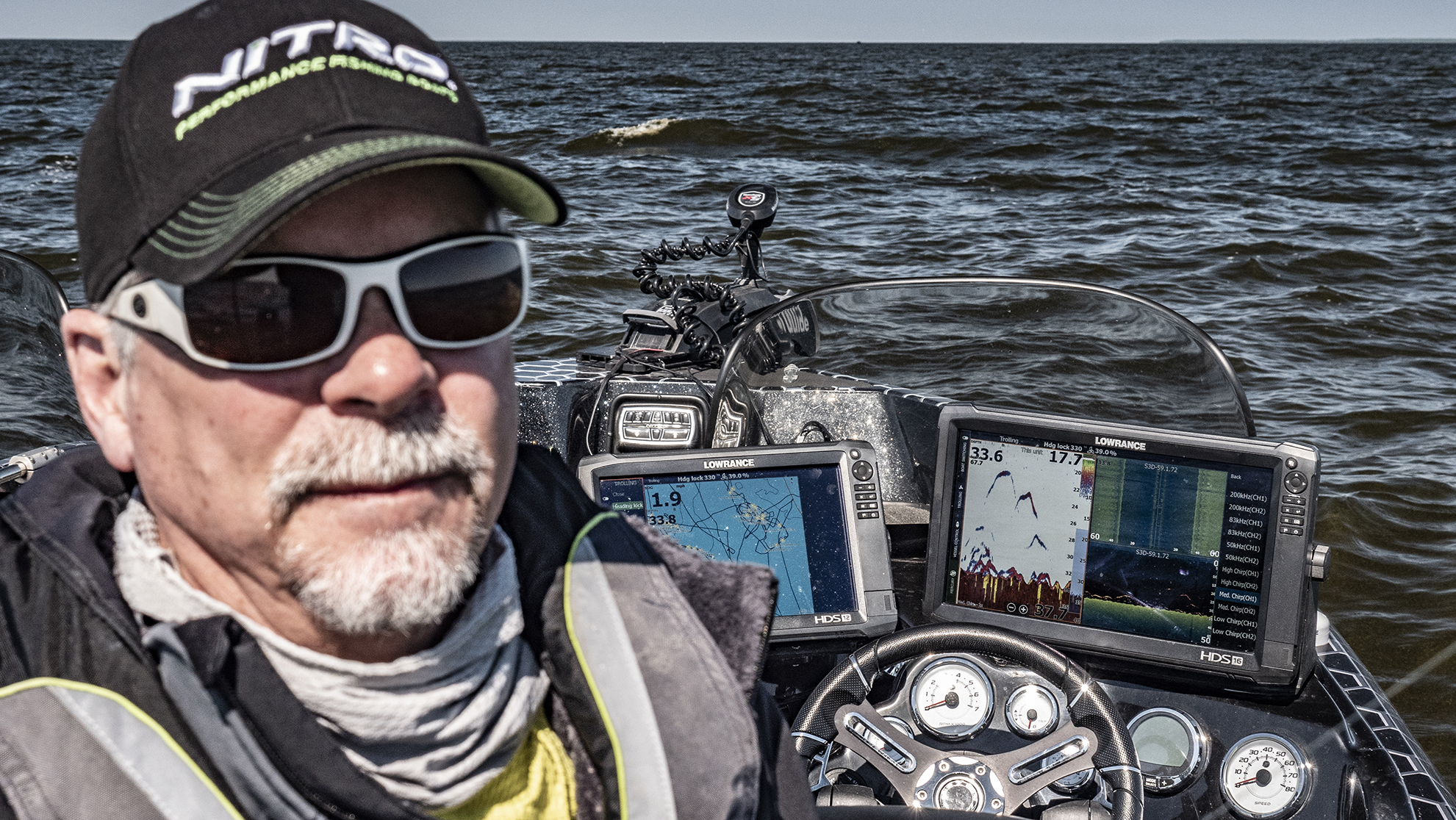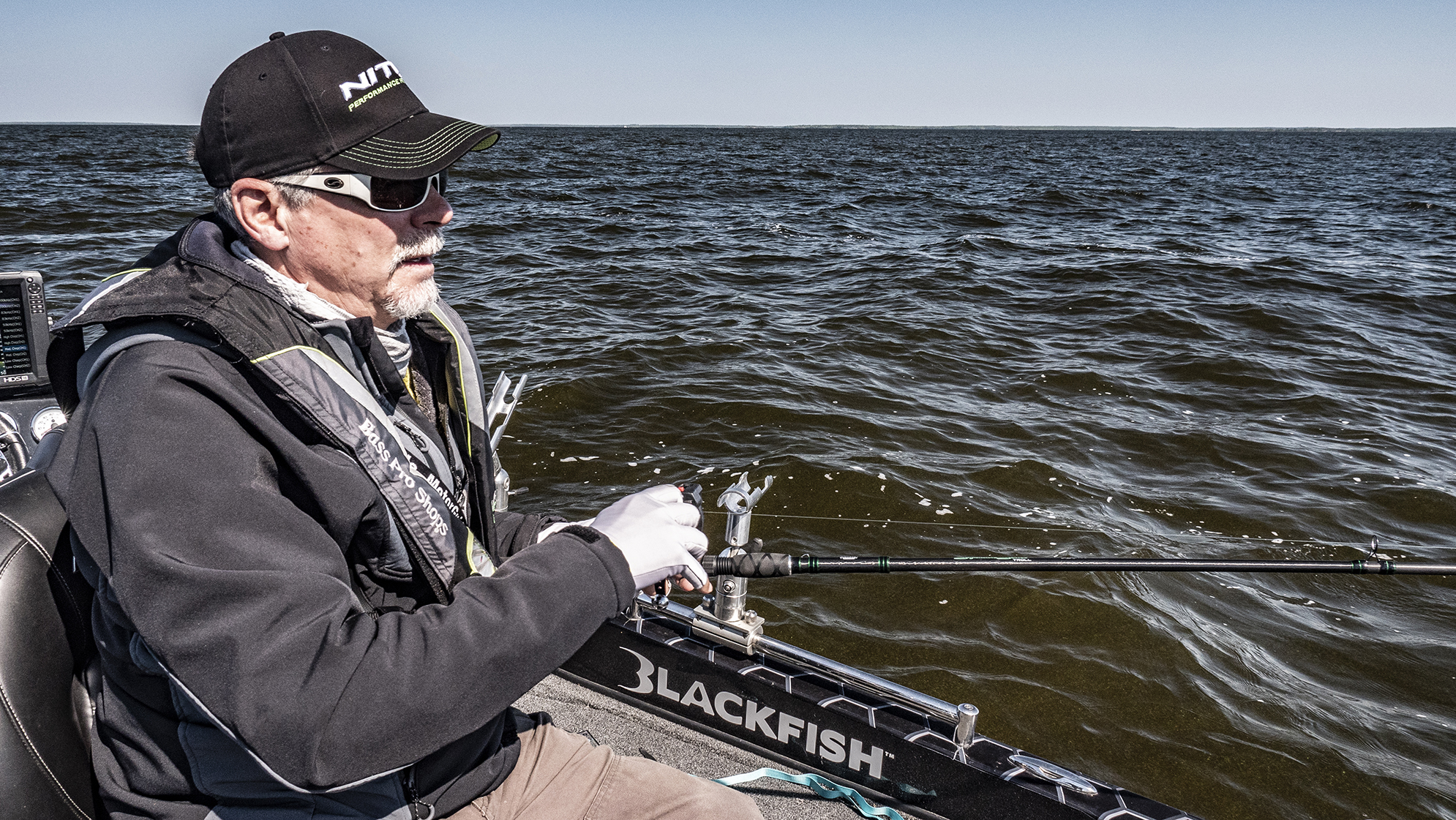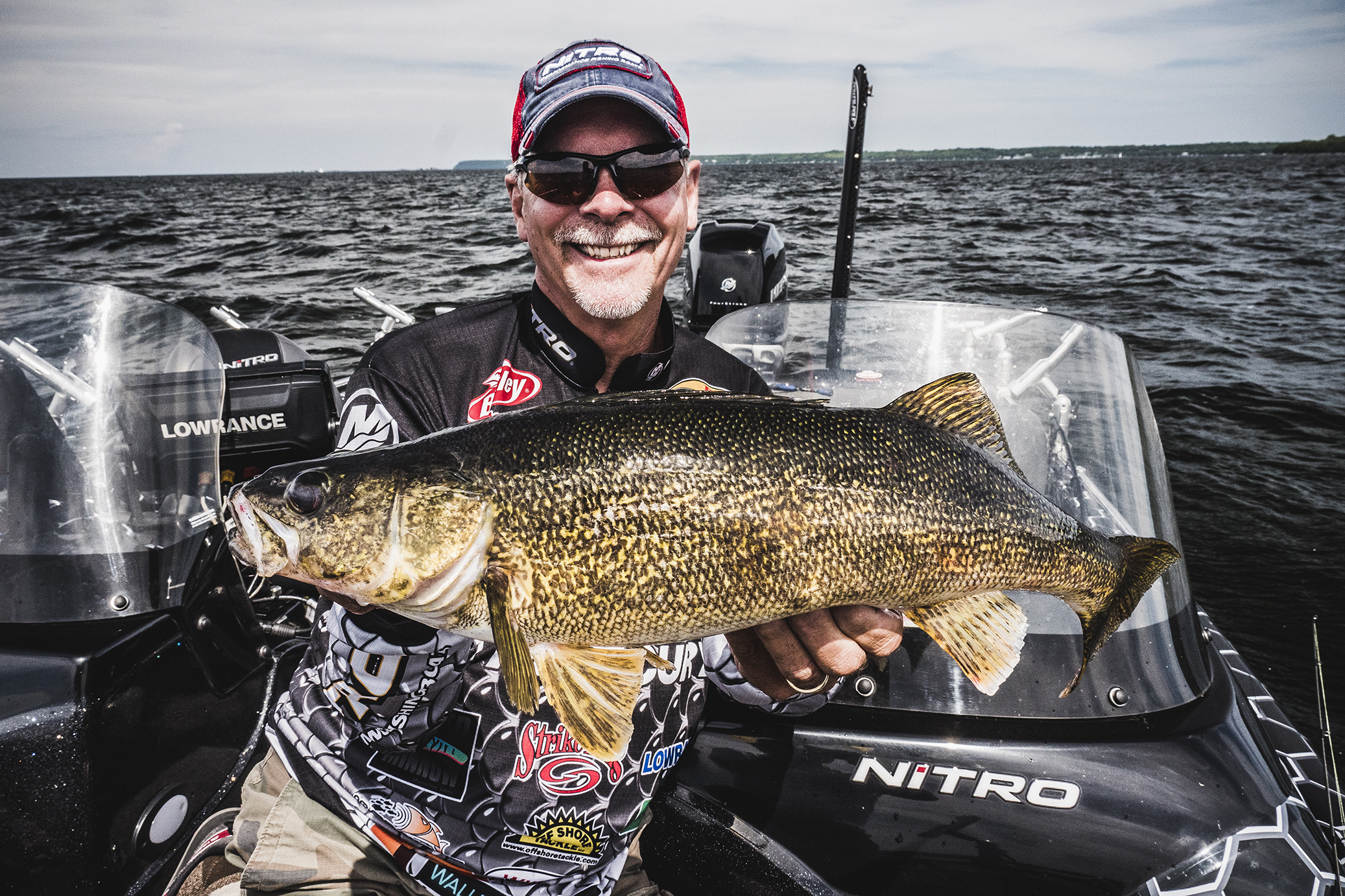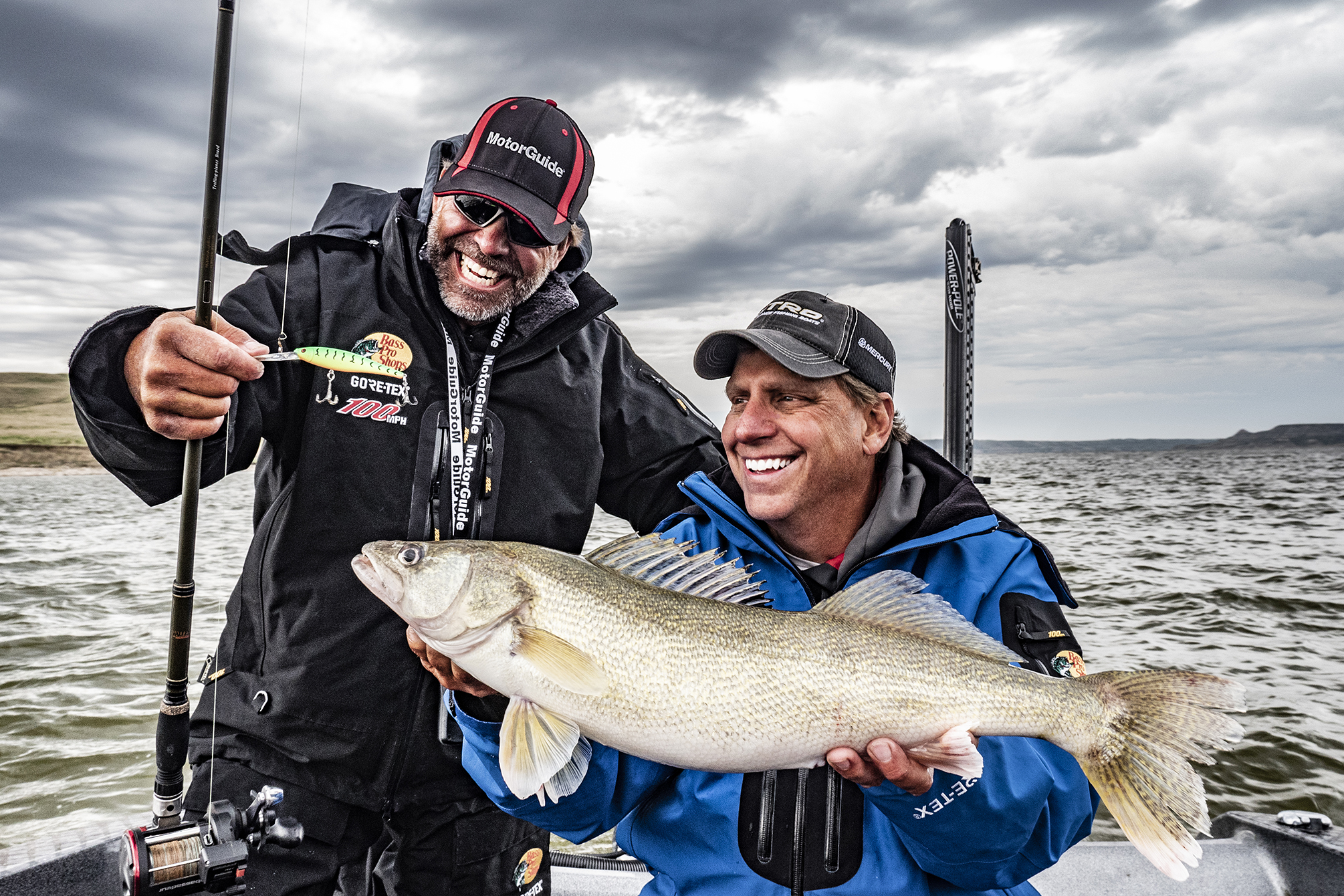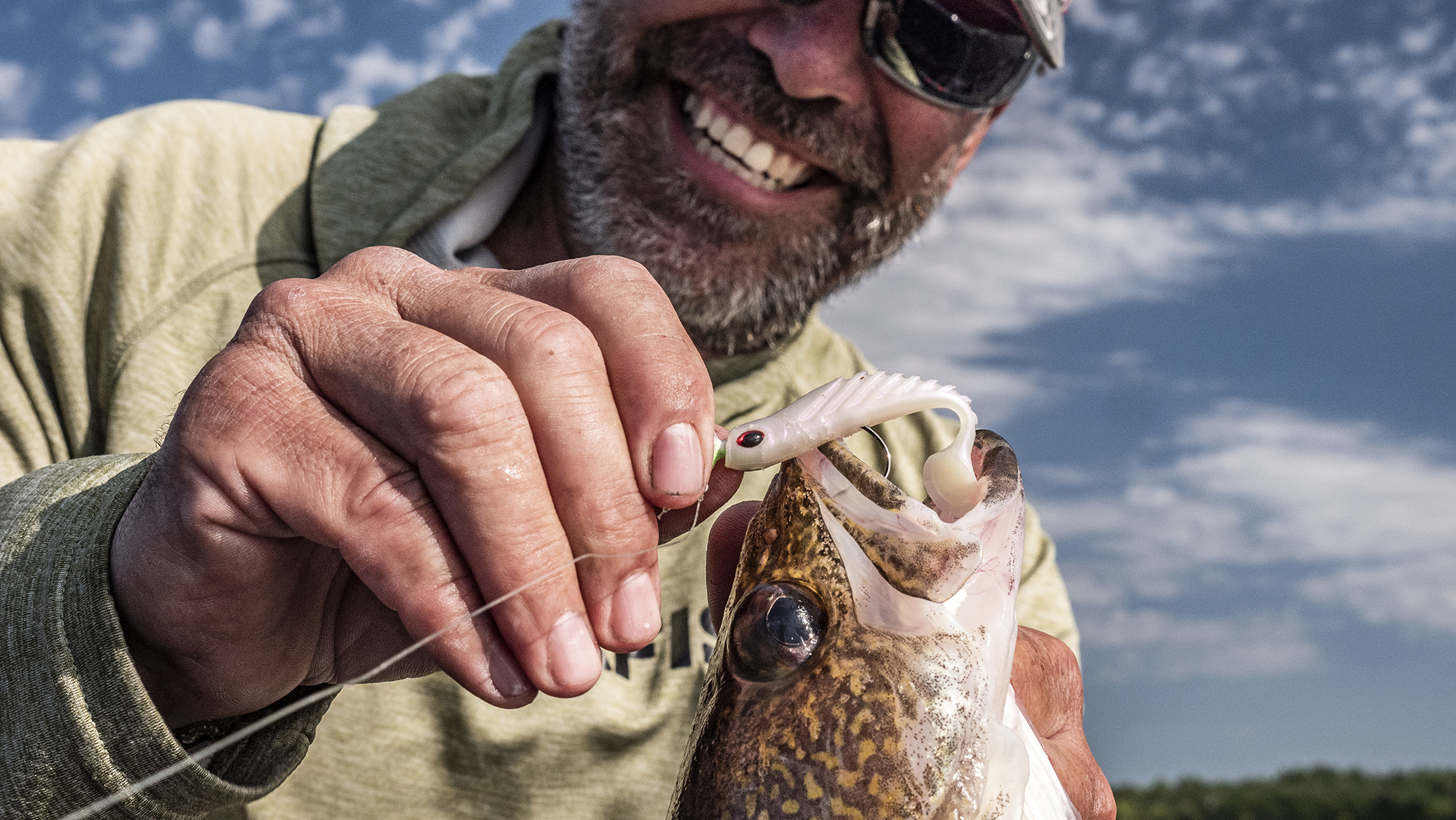When do walleyes like bass lures? An obvious answer to this question is… when they eat ’em! Professional walleye anglers John Campbell of Florida and Ted Takasaki of South Dakota both used white-and-chartreuse 1-ounce Booyah Blade spinnerbaits to win separate tournaments this past summer at Lake Oahe reservoir in South Dakota.
When do walleyes like bass lures? An obvious answer to this question is… when they eat ’em! Professional walleye anglers John Campbell of Florida and Ted Takasaki of South Dakota both used white-and-chartreuse 1-ounce Booyah Blade spinnerbaits to win separate tournaments this past summer at Lake Oahe reservoir in South Dakota.
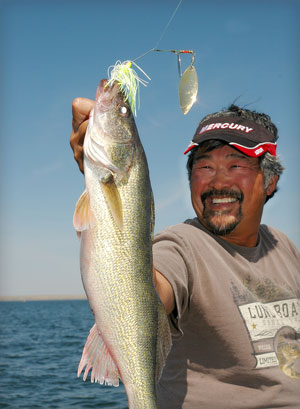 Campbell cashed a $50,000 first-place check at an FLW Walleye Tour event, and Ted won the prestigious 38th Annual South Dakota Governor’s Cup with partner Jammie Koepp. Ted and Jammie’s winnings came out to be more than $21,000, plus two gold rings worth $3,000 apiece.
Campbell cashed a $50,000 first-place check at an FLW Walleye Tour event, and Ted won the prestigious 38th Annual South Dakota Governor’s Cup with partner Jammie Koepp. Ted and Jammie’s winnings came out to be more than $21,000, plus two gold rings worth $3,000 apiece.
Both events were conducted during the heat of July, and the ‘bass baits’ came out to shine.
Campbell and Takasaki have been fishing walleye tournaments since 1988, when they started fishing the Masters Walleye Circuit (MWC) together. In 1991, they climbed to the top of the MWC by winning the coveted Team of the Year title.
Spinnerbaits for walleyes may sound like a weird tactic. But tactics must be judged by the only factor that counts: their ability to produce fish. Walleyes apparently were never told they aren’t supposed to eat bass lures.
Lake Oahe is a reservoir that rises and falls during years of drought or floods. Trees often grow along the shoreline during times of low water. When the reservoir rises, those trees become prime habitat for walleyes.
Fishing Flooded Trees
Flooded trees, as you can image, are tricky to fish through and around. They generally demand a vertical presentation to avoid snags. For years, local anglers and the pros who visited relied on slip-bobbers or jigs to get down into the tree tops. But, slip-bobbering is a slow process, especially when walleyes are spread out.
With a fish here and a fish there, trolling is a much better tactic, in theory. But traditional walleye spinner rigs and crankbaits tend to hang up far too often.
Enter the bass angler’s favorite weapon for woody cover – the spinnerbait.
“What makes a spinnerbait appealing to me,” says Takasaki, “is that you can troll or cast it in those trees without snagging all the time. I have always asked myself if a walleye will eat a spinnerbait. It possesses flashy blades, which are similar to traditional walleye in-line spinners. From a walleye’s point of view, it resembles a minnow, so why not?”
At last year’s FLW event on Lake Oahe, Booyah spinnerbaits were used to take the title, as well as several top ten finishes. Their design allows them to travel through the wood without getting hung up as often as other lures. Although Takasaki and his partner had some snags, 18-pound TUF Line leadcore and super braid leaders helped pull many of the baits free. If a spinnerbait broke off, it was a simple process to re-tie. Lures were spread out by using the new 12-foot and 5-foot EyeCon trolling rods from St. Croix.
Booyah spinnerbaits were the winner’s choice at both tournaments. These lures are unique, in that they possess large, gold-plated, willow leaf blades that thump and flash better than any other spinnerbait. Their vibration calls walleyes up from the tree tops, and the fish readily bite the spinnerbait. The shape of the head and design also allows Booyah’s to crawl over woody cover and deflect most snags.
Catching Treetop Walleyes
Lake Oahe is a massive reservoir of the Missouri River system, encompassing more than 370,000 acres. It stretches from the middle of North Dakota to Pierre, South Dakota. In order to find fish in this humongous reservoir, Humminbird’s unique down-imaging and side-imaging capabilities were used extensively. The fish appeared clear as day amongst the tree branches.
In Campbell’s case, once fish were spotted, he would let out enough line to reach the top of the trees which were located in 17 to 25 feet of water. The 1-ounce spinnerbaits would slither over a branch, then fall down to the next. Walleyes were either at the bottom, part way up, or around the top depending upon the time of day. The size of the lure allowed it to cover the productive area well while trolled precisely at 2 mph.
Campbell would watch his sonar carefully to anticipate when he would come out of the trees so he could turn around quickly and remain within the productive area. Concentration was the key for him.
For their win, Ted and Jammie also trolled 1-ounce white and chartreuse Booyah Blade spinnerbaits over submerged trees, in an area called Peoria Flats.
“The key to this victory was boat control,” Ted said. “I used my 9.9 hp Pro Kicker in conjunction with a bow-mounted Terrova trolling motor to keep my speed at 1.8 to 2 mph. I had to stay right on the 17-foot contour. Any shallower and we would get hung up. Any deeper and we were out of the productive trees. My Lund 208GL is extremely responsive, so a slight turn with the trolling motor allowed me to stay at the right depth.”
Only certain tree-dominated stretches held fish; they weren’t everywhere. It was important to keep moving around massive tree flats to find the active fish.
For Campbell at the FLW, the Booyahs produced a three-day total of 45 pounds, 6 ounces and first place. Battling a sore neck from an injury, he garnered his first win since 1999 when he won an event on the Detroit River.
“This was a monstrous victory for me, especially since I thought I was done with this game,” Campbell said. “I’ve had lots of top 10 finishes. Everything has got to go right to win.”
For Ted and partner Jammie, the Booyahs produced a two-day total of 29.38 pounds, good for first place over 137 other teams in the Governor’s Cup, one of the longest-running and most prestigious tournaments in walleye fishing.
So when is a bass lure a walleye lure? When it works!

